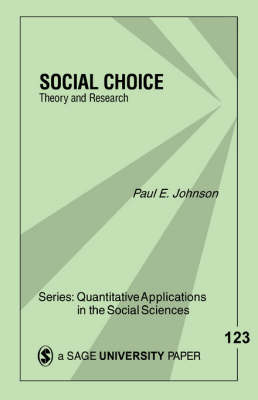Quantitative Applications in the Social Sciences
1 total work
Author Paul E. Johnson introduces researchers to the key questions, concepts, terminology, methods, and results of social choice theory, a method of aggregating individualÆs preferences into societal preferences (such as voting). By presenting technical details from the ôground up,ö Johnson first introduces readers to the effects that decision-making procedures have on social choice. He next explains the idea of a social preference function, a rule that is used to take into account individuals, preferences when creating social ordering. He explores the basics and implications of ArrowÆs possibility theorem and the implications and applications of the uni-dimensional spatial model. Social Choice: Theory and Research concludes with an investigation of the multidimensional spatial model and an exploration of the instability of majority rule, including a discussion of chaos theory. Students in political theory, public choice, and public finance will find Social Choice: Theory and Research a comprehensible introduction to social choice theory. Researchers interested in decision-making difficulties in government, international organizations, and corporations will find this a handy reference for their studies.
